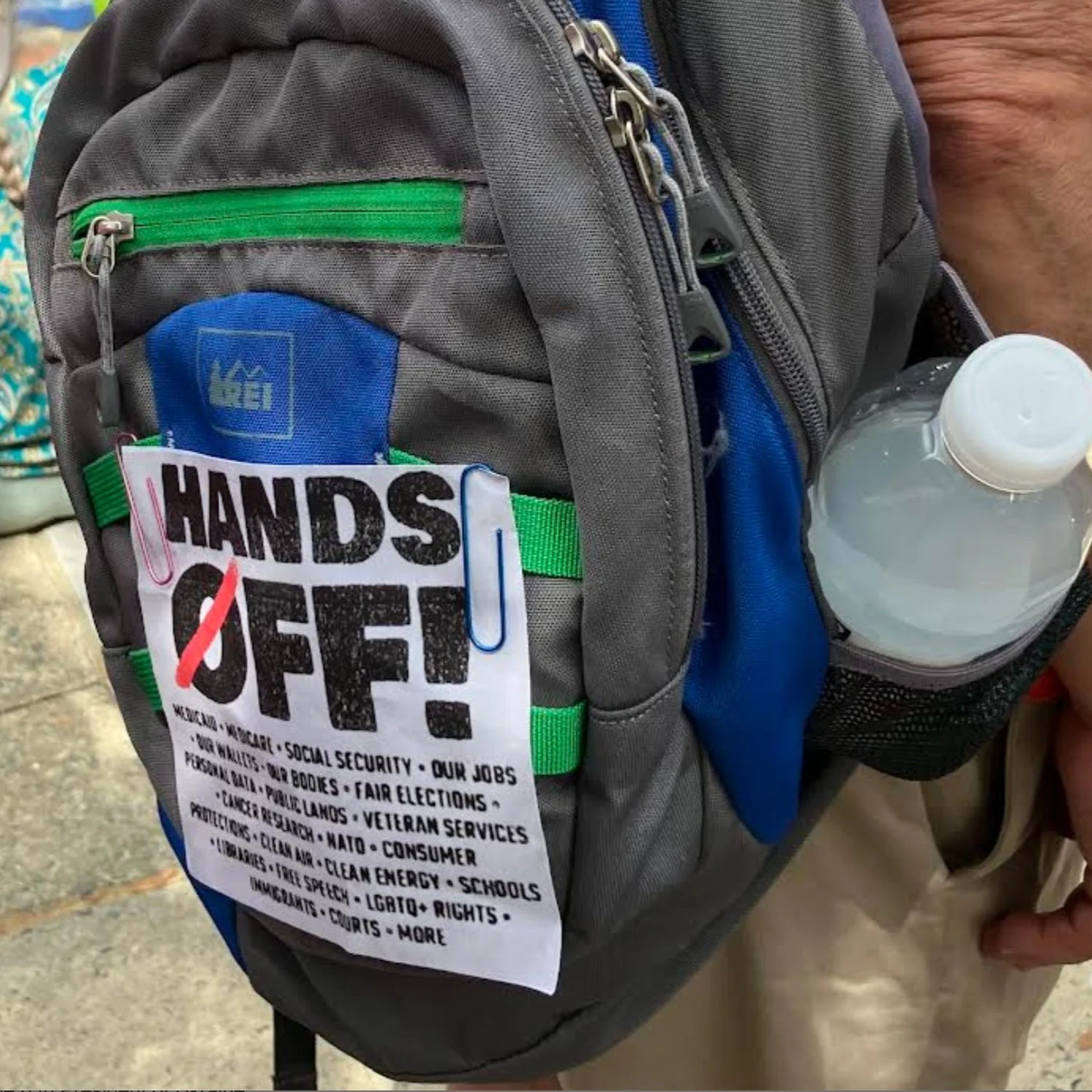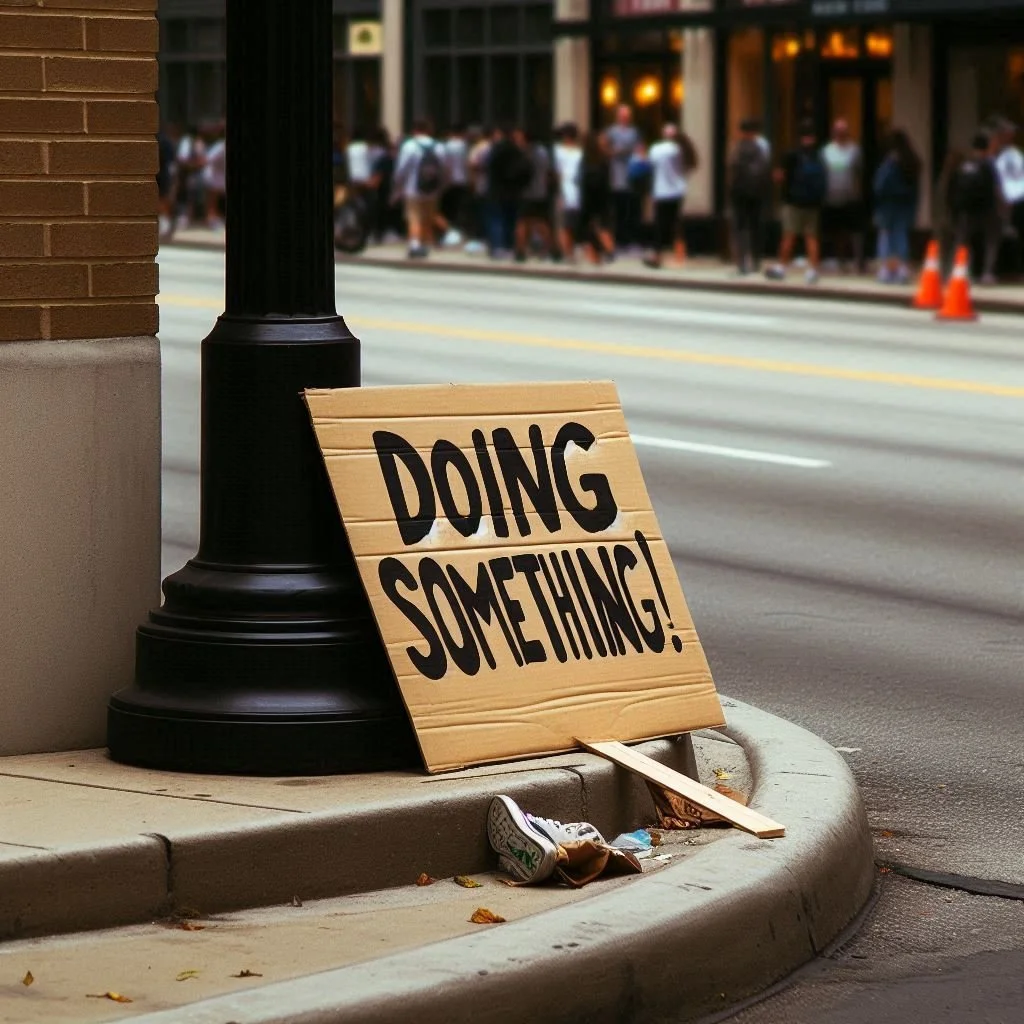“Neil, Can I count on you…?”
. . . I understand: they are sending off millions of emails, as easy as sending out one, hoping to just hear back from a few, hoping to raise any money they can for their campaigns.
In the past, I have given money to some progressive candidates and to some progressive organizations. I have supported some groups and have signed some petitions. I understand that my information is shared among office holders I have supported, candidates whom I have never heard of and organizations with similar political stances.
And I acknowledge that the inbox isn’t nearly as overflowing as it was those few weeks before the election when I think every progressive candidate running for every possible office was beseeching me to just donate whatever I could, even if it’s just five bucks.
But, please: stop. . . .
fURTHER reading about Our Generation
Here’s some of what we have seen recently that might be of particular interest to our generation. (Apologies for any pay walls.) Send us what you have seen at WritingAboutOurGeneration@gmail.com.
“What Happens to Your Brain When You Retire?”, Mohana Ravindranath, New York Times, March 26, 2025.
“Can You Buy Yourself a Longer Life?”, Sophie Novack, Texas Monthly, March 26, 2025.
“Bobby Weir: ‘I’ve Never Made Plans. I’m Too Busy’,” Rolling Stone, Angie Martoccio, March 20, 2025.
“6 Tax Breaks After 50…,” Rocky Mengle and Patricia Amend, AARP, Jan. 16, 2025.
“Three Medical Practices That Older Patients Should Question,” Paula Span, New York Times, Sept. 14, 2024.
“What Happens if You Die Without a Will?”, Patrick M. Simasko, Kiplinger, Feb. 15, 2024.
Here’s to Closed Captioning!
It’s a British spy thriller and a key moment in episode 6 of season 1. We’re just about to find out who’s responsible for kidnapping the innocent student and all the violence that ensued.
But they’re all speaking with impenetrable Brit accents. Some are East Enders, Cockneys. Others are from the midlands, heavy Yorkshire brogues. Most important, we don’t hear nearly as well as we used to and the accents make it harder. So, how the hell are we supposed to understand what they are saying as they finally explain the TV series’ convoluted plot?
Not too much of a problem, actually. We read the closed captioning.
We began using closed captioning all the time six or seven years ago . . .
What I’m Still Good At
. . . . I can’t touch my toes anymore and my ophthalmologist, at my annual appointment, each year tells me I need new lenses because 20/20 is now 20/60.
I used to be able to sleep until 10 or 11, now I’m lucky if I can make it to 7. I don’t drive as well (those cataracts, getting bigger each year, make those haloes from oncoming traffic at night even more annoying).
I don’t hear as well, nor do I breathe as well or remember as well as I used to
And so on and so on. It’s all a little depressing. To balance it out, I’ve started thinking about what I’m still good at—what, maybe, I’m even better at now. . . .
Scenes (and Signs) from a protest
In big cities and small towns, people—thousands, hundreds of thousands—gathered April 5 to say "Hands Off": hands off Medicare and Social Security and veterans' benefits and science research and women's rights and all the rest.
Will it stop the tsunami of dread? Of course not. But it's a start. And isn't that what we need now?
Click for more images
I Wanted to Vote for Eldridge Cleaver
How could so many people have voted for Trump—not once, but twice? What were they trying to say, if anything? Or were they just saying a big fuck you to us all?
I think I may now understand that attitude because more than 50 years ago, during a national election, saying a big fuck you was exactly what I wanted to say.
My first vote in a presidential election was 1968: Nixon v. Humphrey.
Nixon, of course, unthinkable. But Hubert Humphrey’s support of the war in Vietnam made him unthinkable for me, too. . . .
glad all Over to remember
The song came up unexpectedly, in the car. As usual, I didn’t want to listen to the news so I slid an old mix-tape CD into the maw of the CD player. The intro drumbeats started and I immediately recognized the song and—though I hadn’t heard or thought of it for years—knew all the lyrics. I sang along.
The song was “Glad All Over,” by the Dave Clark Five.
It came out in 1963. Sixty-some years later, every single lyric—granted, the song is fairly repetitive—immediately came back to me.
Those were not the only lyrics I unexpectedly have remembered recently. When my wife and I were talking about how cold this winter has been, I noted, “coldest winter in almost 14 years,” and realized quickly that was one of the lines from “Mandolin Wind,” by Rod Stewart. I pulled it up on Spotify and instantly knew all those lyrics, too. . . .
Murdoch and Mitch
How did we get here? How did all this happen?
I ascribe it mostly to two individuals: Murdoch and Mitch. (To be clear, the Mitch is not Mitch Stephens, my friend and colleague and the co-editor of this site. It’s Mitch McConnell. Murdoch is, of course, Rupert Murdoch.) They got us here.
There were others, of course, who have brought us to this moment—Ronald Reagan, who made many believe government was the enemy; Grover Norquist, the fanatical anti-tax crusader who wanted to “drag government into the bathroom and drown it in the bathtub;” social media, which spread the craziness from friend to friend; Newt Gingrich, who launched an enduring era of partisan warfare; and many others.
But Murdoch and Mitch deserve the most dis-credit. . . .
The Madness of March
Didn’t watch a minute of the Super Bowl, not even the Kendrick Lamar part. Didn’t care about the college football playoff championship. Was out of the country for the World Series and can’t quite remember right now who won the NBA finals or the Stanley Cup.
But boy, do I love March Madness.
Maybe it’s because I live in a college town, where college basketball is religion, even when the reigning deity has lost some of its divine powers. Maybe it’s because I am in the center of a region that has few professional teams and has historically dominated the sport of college basketball for decades.
Or maybe it’s because March Madness, the NCAA college basketball tournament, is the one sports event that everyone can feel a part of. . . .
The Democrats Roll Over and Play Dead
. . . . I wish, these days, I was party to another party.
I want to support a political movement that vigorously fights for what I believe in. I want to support a political party that understands the grave threats facing this country and is willing to do whatever is needed to meet those threats. I want to place my faith in an organization that is angry and determined and full of passionate intensity.
That is not the Democratic Party.
Ever since November’s election, and particularly since the inauguration, the Democratic Party has been confused about how to respond to the assault on our democracy orchestrated by Donald Trump and implemented by Elon Musk. The party has followed, for the most part, the advice from long-time Democratic strategist James Carville to roll over and play dead and wait for the Republicans to really screw it up. . . .
The virus, five years on
On March 13, 2020, five years ago, the U.S. government declared a nationwide emergency because of a new viral disease starting to spread across the country. The virus was called severe acute respiratory syndrome coronavirus 2 or SARS-CoV-2. The disease was called COVID-19, the number for the year in which it was discovered.
Most of us just called it Covid, and it has changed our lives like perhaps nothing else in our memory.
It is up there with what had been perhaps the defining moment for our generation, the assassination of President John F. Kennedy. It is there with the attacks of 9/11. It is, like them, a before-and-after moment, an axis, where almost nothing was as it previously had been.
Covid altered the world, transformed our country and particularly changed our generation. According to the most recent statistics, nearly 25 percent of those who died in this country from Covid—a quarter of a million individuals—were from our generation. . . .
Why are the streets so quiet?
Where are the demonstrations, the protests, the angry outbursts, the furious gatherings, the outraged marches? Where are the acts of civil disobedience?
Didn’t the disgraceful performance at the Oval Office the other day finally make something click? Didn’t the bizarre 90-minute speech to Congress, full of lies and craziness, do it? Haven’t we finally realized that our democracy is being stolen, our privacy is being ransacked, our national reputation is being ravaged, our judges are being intimidated, our American soul is being sold and … pretty much nothing?
Well, some of our reps dressed in pink for the speech, and when one of them was escorted out of the chamber they angrily … held up paddles. And some of us decided the other day that to express our outrage, we wouldn’t shop at WalMart or Amazon. That’ll show ‘em!
Look, I didn’t buy anything during the economic boycott. My only economic activity was I ate lunch with a friend at a locally owned place and paid in cash, my (very) little thumbing of my nose at the rapacious corporate oligarchy that had eliminated DEI practices. . . .
I never graduated from college.
Many people I know—maybe most?—assume I did. They assume a nice middle class, well-read, generally articulate, reasonably knowledgeable professional writer (that’s me, I think) who has worked for major publications and published a dozen or so books surely graduated from college.
But I never did, and nearing my 79th birthday, I’m wondering if I should be regretting that.
I mean, I could have graduated from college. I was probably smart enough. I just … well, never showed up for many classes. Back in my day, you really had to actually be there to pass the course. None of today’s remote learning stuff.
But instead of physically going to classes, I went to the college newspaper office. That became my education, my training ground, my obsession. I spent pretty much all my undergraduate time there, writing and editing and bullshitting and making friends for life. . . .
Battles may be lost, but the fight continues
We seem to keep losing every battle. We have to keep believing we can still win the war.
Yeah, things are bad and they do seem to be getting worse. Pete Hegseth, Tulsi Gabbard, RFK Jr., Kash Patel, the Gaza travesty, the trashing of the Kennedy Center, the Ukraine sellout, the deportations, the indiscriminate firings, the cuts at the CDC and the NIH and on and on.
One after another, we fought for rationality, legality and common sense and we’ve been defeated. And yet, the war isn’t over. The battle goes on. It must. …
An Invention That really transformed our lives
Google the greatest inventions of our time, say the last 75 years, and you’ll find all sorts of wonderful, important techy stuff. Stuff like the Internet, of course, and the integrated circuit, the smartphone, the MRI scanner, the laser, the personal computer, the Global Positioning System.
All great, all important, all have significantly changed the world and our lives. Transformative, all of them. We use them, we depend on them, but of course we have absolutely no idea how they work.
But what about the more mundane stuff that’s been invented during our lifetime, the simple things, the not-particularly-technical inventions that have simply made our day-to-day existence so much more pleasant? . . .
What Can We Do?
I’ve signed up to go to my first protest demonstration on Monday. I’ll stand on a corner waving a sign. Earlier this week, I made my first financial donation to a Trump-fighting group. I’ve started regularly calling the office of my (cowardly Republican) senator.
I’m beginning to try to answer the question, at least for me, of what can we do?
Of course, for these last four weeks, it’s been easier to say, what can we do? How can we possibly deal with the onslaught that seems never-ending? With the accumulating day-to-day nightmarish realities? The zone indeed has been flooded, and we have felt overwhelmed. Recent national surveys report that nearly half of those who identify as Democrats say they feel “exhausted.”
So, it’s been easy to tune out, which I have done. . . .
Have Tech? Make Sure You Have Kids (or AI)
A couple of weeks back, I had a computer issue. I don’t remember now exactly what kind of computer issue it was, but it was something I couldn’t fix on my own.
Although I tried. I re-booted, several times. I Googled answers, followed prompts, checked in with support groups, went to help websites, had a chat with an automated chatbot and still wasn’t able to fix the problem. I had considered downloading ChatGPT, but instead I took the easier way out: I did what I had promised myself I wouldn’t do but I’ve done time and time again: I asked my kid.
Listen, don’t judge me. I am, in fact, better with tech than a lot of people my age. Well, some people my age. . . .
On the wagon
I don’t drink alcohol anymore.
Well, that’s not completely true. Very occasionally—maybe every three, four weeks or so—I’ll have a small glass of wine, maybe half a glass. Very occasionally, I might have a sip or two from my wife’s wine glass, if wine is something that really goes with what we’re eating.
But, in general, I’ve pretty much stopped. After my heart attack, the rehab nutritionist told me to stop. (The humane cardiologist, however, advised that yes, I should stop but yeah, maybe a small glass every few weeks won’t kill me.)
It may be for other, different reasons, but I sense I’m not the only one who has stopped, and particularly not the only one in my age group. More and more friends, it seems, aren’t drinking anymore. . . .
How do we fight back?
The blizzard of vengeful executive actions, the horrible spending freeze, the cruel deportation roundups, the purges of the DOJ and the FBI, all coming one after the other after the other, seemed to just overwhelm us. Then the DC plane crash happened.
Somehow, that touched a new nerve. I got a call the day after the crash from a good friend. No specific reason for the call, except he clearly just had to vent. Despite probably knowing better, he had just watched the televised news conference the president had given after the crash and he had to talk to someone and spew.
My friend was so angry, so upset, he could barely get the words out. . . .
Our Dietary Requirement: Quiet
Before going out, we used to just check out the menu. Did the restaurant have things we could eat, stuff we liked, dishes that sounded interesting?
And maybe, then, we’d take a look at the prices—were the prices reasonable or did the salmon entrees begin at 40 bucks?
Now, even before checking out the menu, before glancing at the prices, we ask: how noisy is the restaurant?
Is it a place where we can actually have a conversation? Where we can talk to friends or each other—and really hear what anyone is saying? . . .





















